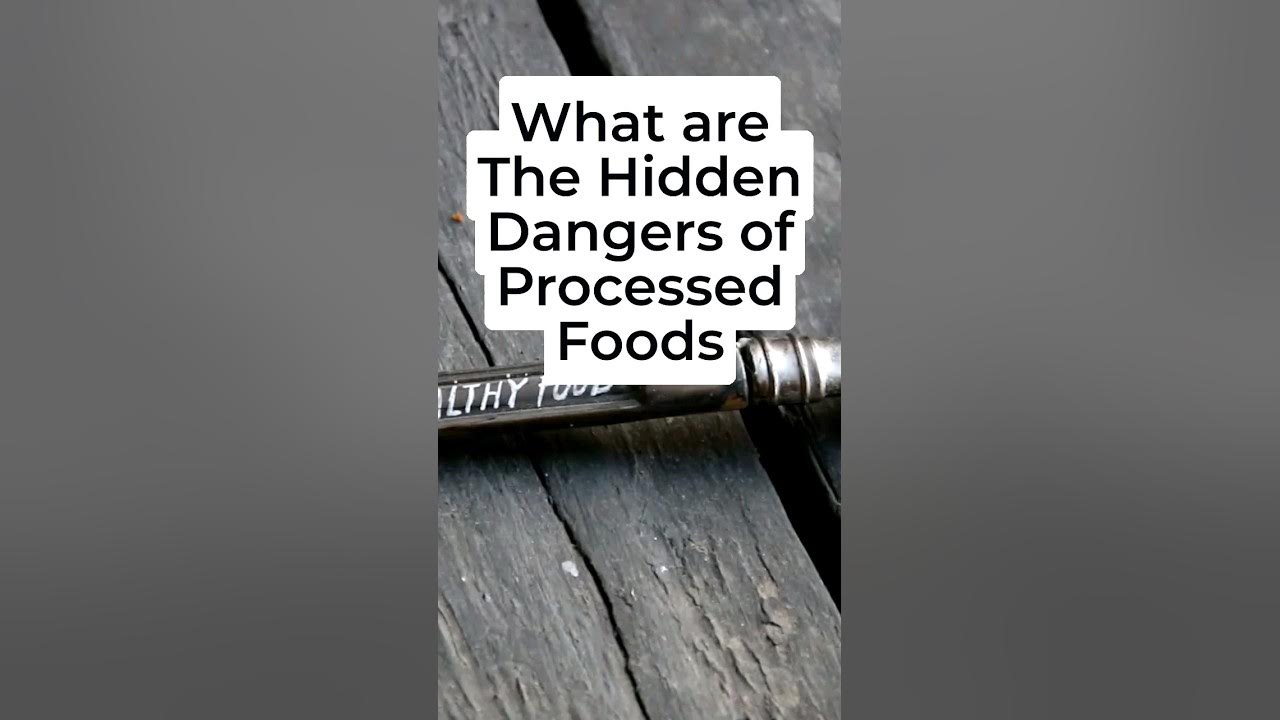In today’s fast-paced world, the convenience and accessibility of processed foods have become a staple in many people’s diets. From frozen dinners to packaged snacks, these foods are often quick and easy to prepare, making them a popular choice for busy individuals. However, while processed foods may be convenient, they also come with a host of hidden dangers that can have a negative impact on our health.
One of the main concerns with processed foods is their high levels of sugar, salt, and unhealthy fats. These ingredients are often added to enhance the flavor and shelf life of the food, but they can also have serious consequences for our health. Excessive consumption of sugar has been linked to obesity, type 2 diabetes, and heart disease, while high levels of salt can contribute to high blood pressure and an increased risk of stroke. Additionally, the trans fats found in many processed foods can raise levels of bad cholesterol in the body, leading to a higher risk of heart disease.
Another hidden danger of processed foods is their lack of essential nutrients. During the processing of these foods, many of the vitamins, minerals, and antioxidants that are naturally present in whole foods are stripped away. This means that even though processed foods may be filling, they often lack the essential nutrients that our bodies need to function properly. This can lead to deficiencies in key vitamins and minerals, which can weaken the immune system and increase the risk of developing chronic diseases.
Processed foods also often contain artificial additives and preservatives, which are used to enhance the color, texture, and flavor of the food. While these additives may make the food look more appealing, they can have harmful effects on our health. For example, some artificial colors and flavors have been linked to hyperactivity in children, while preservatives like sodium nitrate have been linked to an increased risk of cancer. In addition, many processed foods contain chemical additives such as MSG and artificial sweeteners, which have been associated with a range of health issues, including headaches, digestive problems, and even neurological disorders.
Furthermore, the manufacturing process of processed foods can also introduce harmful contaminants into our food supply. For example, food processing equipment may come into contact with toxic chemicals, pesticides, or heavy metals, which can then be transferred to the food during processing. Additionally, the packaging materials used for processed foods can contain harmful substances like BPA, which has been linked to hormonal imbalances and an increased risk of certain cancers. These contaminants can accumulate in the body over time, leading to long-term health problems.
Despite these hidden dangers, the consumption of processed foods continues to rise, largely due to their convenience and affordability. However, it is important for consumers to be aware of the risks associated with these foods and to make informed choices about their diet. By opting for whole, unprocessed foods whenever possible and reading food labels carefully to avoid harmful additives, individuals can reduce their exposure to the hidden dangers of processed foods and improve their overall health and well-being.
In conclusion, while processed foods may offer convenience and affordability, they also come with a host of hidden dangers that can have a negative impact on our health. From high levels of sugar, salt, and unhealthy fats to artificial additives and preservatives, these foods can contribute to a range of health issues, including obesity, heart disease, and cancer. By being mindful of the risks associated with processed foods and making informed choices about what we eat, we can protect our health and well-being in the long run..
